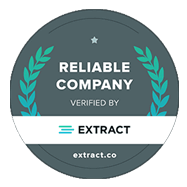E-commerce is the activity of selling and buying of the products using the online services or over the Internet. Ecommerce refers to the commercial transaction of the products conducted online.
What is open source?
The term open source refers to something people can access publicly and modify according to their requirements. Open-source software is software with source code that anyone can inspect, modify and enhance.
1. Magento

Magento is one of the most popular open-source e-commerce platform available in the market for the e-commerce application.
It is very similar to the WordPress market where the community is reached with the developer and the market demands.
-It is free and if you want the upgraded version you can purchase it according to your business requirements.
-You can send the alert notification of the products to the customer using its functionalities.
-Versatile content management.
-Functioning without proper understanding or sills can be hazardous as Magento development require good experience working on its platform.
-Installation and modification require skills and experience.
2. Square

In the e-commerce market, most of the developers are aware of the Square platform with the popularity of square. Square dealing with businesses like restaurants, coffee shop and other. With the square, you don’t need to pay anything to build an online e-commerce store.
-Free, unlimited hosting.
-Supplier management.
-Support for in-store pickup.
-Not stable for high-risk industries.
-Account stability issues.
3. WooCommerce

WooCommerce is one of the WordPress plugin available in WordPress. You can install the plugin on your localhost for a better understanding.
-It’s very secure and looks professional.
-It has a lot of customization available.
-It helps you to content marketing better.
-Hard to implement multi-currency.
-Wishlist functionalities which are hard to implement in WooCommerce.
4. X-Cart

X-Cart has helped in the e-commerce market to create over 35,000 online stores. X-Cart id free, self-hosted, open-source.
X-Cart has so many features available which you should try once.
-Fast search and Social login.
-Advanced order management.
-Integrate multiple gateways.
-Requires manual coding and setup.
-Expensive up-gradation.
5. Zen Cart

Zen Cart is more user friendly as compares to the other e-commerce platform. You don’t require the advanced developer’s sills to work on Zen Cart.
-Easy to set-up.
-Customizable and focused on the user’s needs.
-Convenient features.
-Poor layouts.
-Requires PHP knowledge to customize.
6. Open Cart

Open Cart is very useful e-commerce when you start the website from scratch and developed with less time.
It is PHP-based using MySql database and HTML components.
-Order and Stock tracking is easy to implement.
-Fast set-up.
-One admin area.
-Payment processing takes time while the transaction.
-Marketing is difficult for this e-commerce.
7. Ubercart

Ubercart is the most popular drupal e-commerce platform for your website. It implements you need to start selling products online. Web developers from all sills range can use this platform for developing e-commerce.
-Simple order creation and editing and processing.
-Customer and administration checkout notification.
-Sales, product and customer reports.
-Customization is less powerful in Ubercart.
-Difficult to work with weight calculation for shipping.
8. PrestaShop

PrestaShop is an opensource, feature-rich e-commerce solution under an open software license. It provides a beautiful interface for multiple languages and currency websites.
-Easy to install, maintain and use.
-User-friendly interface.
-Secure payment.
-Paid functionalities.
-No official support team.
9. JigoShop

JigoShop is an open-source, a WordPress e-commerce plugin developed by professional developers. Overall the development of JigoShop is improved over the years.
-Easy to edit the code of your website and choose a large selection of the themes.
-The Jigoshop integration is very similar to WordPress.
-Provides various shipping methods.
-JigoShop market is not wide.
-Difficult to find the free solution of the bug on the website.
10. Drupal Commerce

Drupal Commerce is in active use on ten thousands of sites. Product management is very easy to use.
The important factor of Drupal Commerce is the huge community in the market available.
-It has built-in caching and speed and overall performance is very improve from the last few years.
-The online solutions are available to overcome your problem in the website.
-Built-in security system.
-High system requirements.
-Difficult to update program modules.
11. WP eCommerce

WP eCommerce is the original eCommerce plugin of WordPress. The WP eCommerce Plugin is everything you need to sell anywhere! Convert visitors to the customer with this beautiful platform of e-commerce online store.
-Dozens of payment gateways are available.
-Easy to customize the design of the layouts
-You can put a restriction on the products.
-Security vulnerability.
-Limited scalability.
12. Wix

Wix is known for a simple e-commerce website builder with the drag and drops functionality available. Basically, Wix allows you to sell anything from clothes to cake online store.
-It comes with the templates of the design which provides great values to the developer.
-You can use support services 24/7 when you stuck somewhere.
-You will get a domain, hosting, storage in the premium plan.
-Not perfect for a large website.
-You can’t implement your own designs ideas.
13. Big Cartel

Big Cartel is an e-commerce solution for artists and creative people to sell their items with their own online store.
Big Cartel is a one-stop platform that lets you run your entire business website online with a click.
-Excellent website loading speed with great optimization.
-Easy to use the dashboard of the admin panel.
-Very affordable pricing plan.
-Limited customer support
-Few available themes.
14. Jimdo

Jimdo is a one-stop-shop for building and developing the e-commerce website and can be used to buy a domain, blog, sell product online. Jimdo powers 20 million websites worldwide.
-Uses SEO friendly and maintain edit pages URLs.
-Good for blogging.
-HTML and CSS editing available.
-Limited templates.
-Limited account for a free plan.
15. Ecwid

Ecwid allows you to set up catalogs of products and add photos, pricing, weight, etc. If you have only limited products to sell Ecwid is entirely free. If you go with a paid plan it will provide you so many options and functionalities to implement.
-Ecwid does not charge any transaction fees.
-It’s a good option for startups and other businesses.
-Payment gateways easy to implement.
-Ecwid requires some coding skills for the implementation of the modules.
-Can’t use for large dynamic online store.
What is the best open source for developing the eCommerce?
Hopefully, the above article has helped you to introduce the open-source and eCommerce platform along with the features. Now choosing the eCommerce is totally depend on your client’s requirements and the project cost. We highly suggest you to first go to the software company before choosing the eCommerce platform for your project. If you have any query regarding this article you can feel free to contact us. We want to hear from you.










